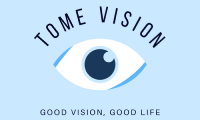Night Vision Problems: Causes and Solutions
Night vision problems can affect individuals of all ages and can be quite frustrating and dangerous in certain situations. Difficulties with seeing clearly in low light conditions, such as at night or in dimly lit areas, can hinder one’s ability to drive, navigate, and perform daily activities. Consequently, understanding the causes and potential solutions for night vision problems is essential for maintaining good eye health and overall well-being.
Causes of Night Vision Problems:
1. Age-related changes: As individuals grow older, the lenses in their eyes become less flexible, making it more difficult to focus on objects in low light. Additionally, the amount of light reaching the retina decreases, leading to reduced night vision.
2. Vitamin A deficiency: Vitamin A is crucial for maintaining healthy vision and plays a significant role in the synthesis of rhodopsin, a light-sensitive pigment in the retina. Insufficient intake of vitamin A can impair night vision and cause other visual problems.
3. Cataracts: These are cloudy areas that develop within the lens of the eye, leading to blurred vision. Cataracts can significantly impact night vision, making it difficult to see clearly in dim or dark conditions.
4. Retinitis pigmentosa: This inherited disorder causes degeneration of cells in the retina that are responsible for detecting light. People with retinitis pigmentosa often experience progressive night blindness, as well as loss of peripheral vision and reduced visual acuity.
5. Diabetes-related vision problems: Individuals with diabetes are at an increased risk of developing visual complications, including diabetic retinopathy. This condition affects the blood vessels in the retina, leading to impaired night vision and other visual impairments.
Solutions for Night Vision Problems:
1. Regular eye exams: It is vital to have routine comprehensive eye examinations to detect any underlying eye conditions that may be affecting night vision. Early detection and treatment of vision problems can help prevent further deterioration and improve overall visual function.
2. Nutritional changes: Ensuring a well-balanced diet rich in essential nutrients, particularly vitamin A, can contribute to better night vision. Foods such as carrots, sweet potatoes, spinach, and kale are excellent sources of vitamin A.
3. Supplements: If a person is unable to obtain adequate amounts of vitamin A through their diet, supplements under the guidance of a healthcare professional may be beneficial.
4. Proper lighting: Enhancing the lighting in one’s environment can make it easier to navigate and perform tasks at night. Installing motion-sensor or LED lights, using night light fixtures, and avoiding excessively bright screens before bedtime can significantly improve night vision.
5. Specialized glasses: Consultation with an eye care professional can help determine if special glasses with anti-reflective coatings or yellow-tinted lenses would be beneficial. These glasses can reduce glare and enhance contrast, improving visibility in dimly lit environments.
6. Surgical interventions: In cases where cataracts significantly impact night vision, surgical removal of the cloudy lens and replacement with a clear artificial lens may be recommended.
7. Lifestyle modifications: Maintaining a healthy lifestyle, including regular exercise, managing chronic conditions such as diabetes, and avoiding smoking, can help promote optimal eye health and improve night vision.
By understanding the causes and implementing appropriate solutions, individuals experiencing night vision problems can alleviate their symptoms and enhance their overall quality of life. It is essential to consult with an eye care professional to receive personalized advice tailored to one’s specific condition and needs. Remember, prioritizing eye health is vital for maintaining clear and comfortable vision, day and night.
